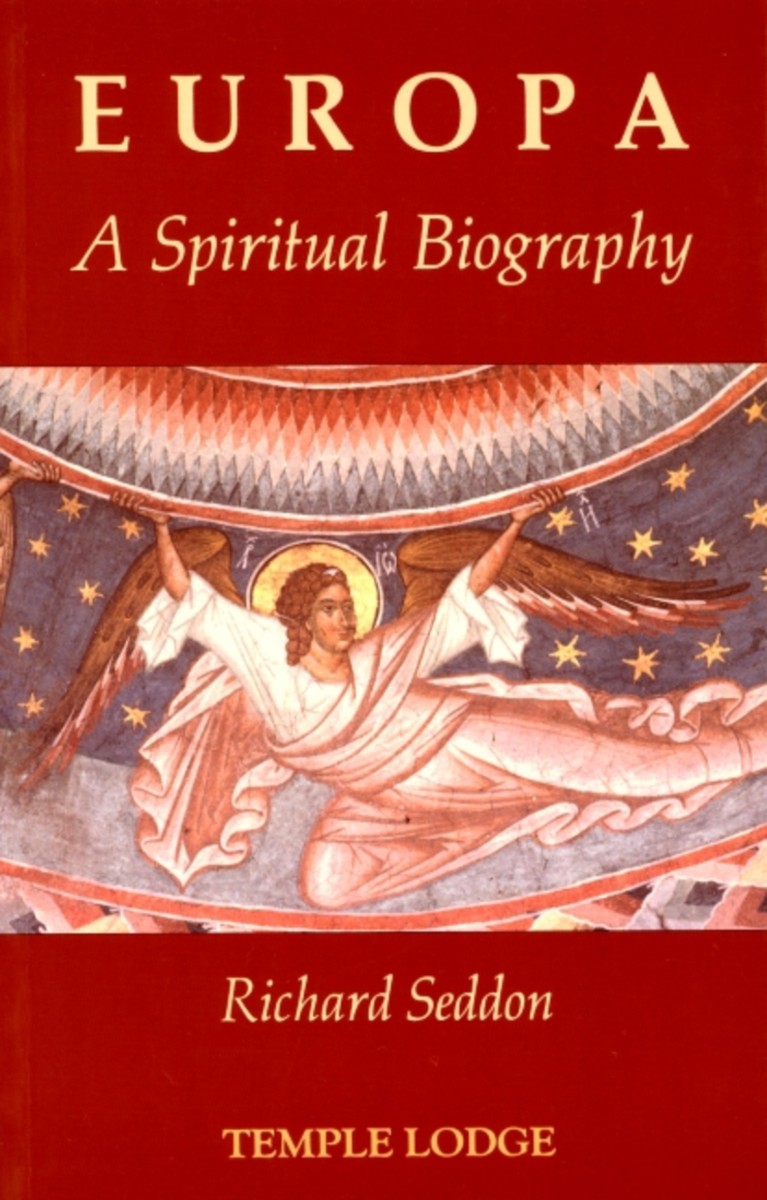Europa
A Spiritual Biography
- Publisher
Temple Lodge Publishing - Published
1st October 1995 - ISBN 9780904693720
- Language English
- Pages 128 pp.
“This study is in no sense a survey of European history as researched by professional historians. It is, rather, an attempt to bring together into a single focus the essence of the published results of the spiritual research into history undertaken by Rudolf Steiner (1861–1925) so far as this relates to Europe, and to set it against a sketch of outer events.” — Richard Seddon (from the preface)
Seddon considers Europe from the point-of-view of the rulerships of the various Archangels of Time from Michael's regency between the mid-sixth and the third century BC, up to his present rulership between 1879 and the twenty-second century.
“Europa was a goddess, the name being interpreted variously as ‘well-watered,’ ‘broad face,’ or ‘good impulse.’ According to legend, Europa was carried off from Phoenicia (and thus arose as a Phoenix) by Zeus in the form of a white bull (in the age of the Bull). Zeus represents the impulse of the Jupiter Oracle of Atlantis, whose special task was directed to the nerves serving the outer senses and to the brain, the distinctive feature of European civilization compared with the Asian cultures which preceded it. Zeus took her to Crete, where she bore him three sons. The eldest was Minos, founder of the Minoan culture (2500–1400 BC)—the name is the same word as Manas, mind. The other sons were Radamanthys (‘diviner with wand,’ suggesting the druidic element) and Sarpedon (‘rejoices in wooden ark,’ suggesting Hebraic/church stream)—together, fundamental influences on the culture to come.”
C O N T E N T S:
Preface
Introduction
1. The Previous Sun Regency of Michael—Classical Greece
—Mid-sixth to third centuries BC
2. The Saturn regency of Oriphiel—The Roman Empire
—Second century BC to mid-second century AD
3. The Venus Regency of Anael—The Age of Migrations
—Mid-second to fifth centuries
4. The Jupiter Regency of Zachariel—The Dawn of Personal Intelligence
—Sixth to mid-ninth centuries
5. The Mercury Regency of Raphael—Christendom (Personal Feeling)
—Mid-ninth to twelfth centuries
6. The Mars Regency of Samael—Corporate and Personal Willing
—Thirteenth to fifteenth centuries
7. The Moon Regency of Gabriel—Personal Egoism, National Egoism
—Sixteenth century to 1879
8. The Present Sun Regency of Michael—The Battle for the Spirit
—From 1879 to the twenty-second century
Conclusion
References
Bibliography
Richard Seddon
Richard Seddon studied moral sciences (philosophy, ethics, logic and psychology) with Bertrand Russell and John Wisdom—an advocate and colleague of Ludwig Wittgenstein—at Cambridge. He spent his working life as a personnel manager. A student of anthroposophy for seven decades, he is the author of several books.


